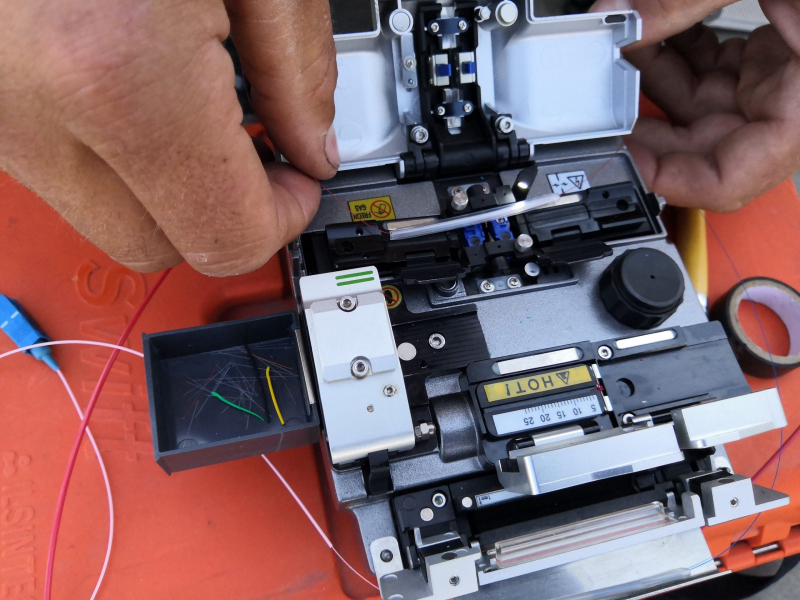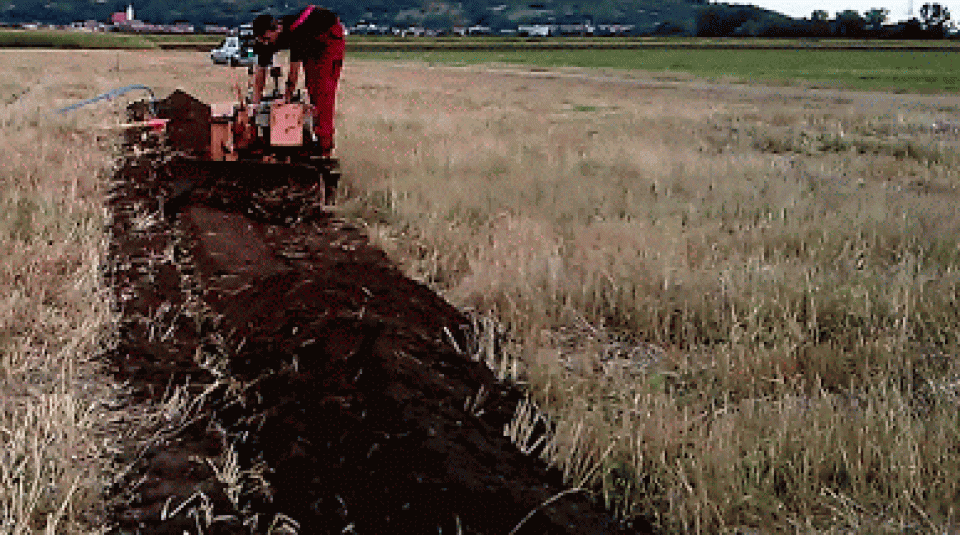This swelling may be a symptom of constrictive pericarditis. recurrent pericarditis, pericardial thickening seen. Most common side effects leading to discontinuation of the medication is GI side effects, such as diarrhea, in 5% to 10% of patients. Exercise Induced Pericarditis. Recurrent pericarditis is diagnosed after a documented first episode of acute pericarditis, a symptom-free interval of more than 6 weeks, and evidence of successive recurrence of pericarditis, using the same diagnostic criteria for acute pericarditis. Therefore, in addition to a delay in healing, there may be a risk of worsening performance and predisposition to musculoskeletal injury. Helen - Thanks for sharing your experiences and setting up this blog. 2 Relapsing pericarditis. With recurrent pericarditis, the duration of colchicine treatment is at least 6 months. Recurrent pericarditis is the most troublesome complication after an episode of acute pericarditis, and affects about 20–50% of all patients with a first treatment for pericarditis. Recurrent pericarditis, like chronic myocarditis, is often considered to be an autoimmune consequence of a prior viral infection.1 Both the pericardium and the heart develop from the mesoderm, but embryologically the two organs are quite distinct. In pericarditis, the body is healing and if we do not rest and restrict physical activity our body will require more time to heal. Introduction. Idiopathic recurrent pericarditis (IRP) is the most troublesome and common complication of acute pericarditis. I have had recurrent pericarditis for 36 years following a viral infection. In the US, treatment of recurrent pericarditis may involve the use of therapies that are not FDA approved for the treatment or prevention of recurrent pericarditis. Relapsing or recurrent pericarditis causes episodes of chest pain with or without a friction rub, sometimes with pericardial and even pleural effusions. Multiple potential etiologies result in RP, in the vast majority of cases through autoimmune or autoinflammatory mechanisms. You may wish to track your triggers. pericarditis strikes again. Diagnosis of recurrence is established according to the same criteria as those used for acute pericarditis … The fatigue is so awful, I could sleep standing up at the moment, if I could bare to stand for that long! ASA/NSAID + colchicine + exercise restriction SECOND LINE: Low dose corticosteroid therapy (0.25-0.5 mg/kg/day of prednisone) **if contraindication to ASA/NSAID/colchicine & infection ruled out ACUTE PERICARDITIS RECURRENT PERICARDITIS FIRST LINE: ASA/NSAID + colchicine + exercise restriction SECOND LINE: Patients often have difficulty partaking in physical activities, reducing QOL. The term “idiopathic” is used when infections (e.g., viruses or tuberculosis), neoplasms, and definite systemic diseases have been excluded. Following a Stent procedure, it is essential to adopt a heart-healthy lifestyle. Exercise might exacerbate inflammatory response and in the process might prolong the inflammation. Recurrent pericarditis has an overall favourable prognosis in children, although it may require frequent readmissions and seriously affect the quality of life, especially in patients treated with corticosteroids. These are disorders in which the body’s immune system makes antibodies that.Exercising Immediately After an Angioplasty. Then there have been some years with no episodes. Slow walking is the best way to start to increase overall levels of fitness. Recurrent pericarditis is the most troublesome complication following acute pericarditis and occurs in 20–50% of patients. through CMR performed within 4 weeks from symp- ... exercise-induced tachycardia and shear stress on the. I can't take Colchicine as I get every side effect listed (and some not listed until I was put on it and had to be blue-lighted to hospital one 0'dark-thirty) - if it's working for you, it's THE medication for the condition. Recurrent pericarditis is a disease characterized by recurrent episodes of inflammation of the pericardium, which is the sac containing the heart. Recurrent pericarditis is one of the most common and troublesome complications after an episode of acute pericarditis. However, the recurrent version occurs when new symptoms pop up after a 4-6 week remission period. Recurrent pericarditis is the most common and troublesome complication of acute pericarditis in clinical practice along with constrictive pericarditis and tamponade. Each episode may last several days and be accompanied by fever. 10. 1–3 Recurrent pericarditis is defined as the recurrence of symptoms and signs of pericarditis after an arbitrary symptom-free interval of 6 weeks. a clinical syndrome characterized by pericardial inflammation with or without concurrent pericardial effusion. It relates importantly to the approach to treatment. Often acute pericarditis seems to resolve spontaneously. 2 Sometimes, however, one or more recurrences take place and the disease may progress to a constrictive pericarditis resulting in heart failure. 1. Recurrent pericarditis usually occurs 4-6 weeks after the first episode of acute pericarditis and often causes debilitating chest pain, physical limitations, hospitalizations and … Acute episodes of pericarditis typically last from one to three weeks, but future episodes can occur. The ECG showed diffuse concave-upward ST-segment elevation and PR-segment depressi… Recurrent pericarditis (RP) is a clinical syndrome characterized by recurrent attacks of acute pericardial inflammation. 1,3. Suggested treatment approach for complicated pericarditis 1,3,7 Patients with pericarditis and no risk features can be considered at low risk and managed as outpatients. In these cases follow-up is mandatory after 1 week to assess the response to empiric anti-inflammatory therapy. Exercise restriction is critical to relieve pericardial inflammation, since it may be a trigger of relapses, possibly due to an increased pericardial friction associated with higher heart rate [5, 42]. That’s why it’s important to plan in advance so you can get the most out of your visit. Some individuals with pericarditis have reported using a fitness tracker to keep track of their heart rate. When individual diagnosed with pericarditis, it is better to avoid vigorous or regular exercises. It may increase the risk of complications such as progression to myocarditis, worsening pericardial effusion and cardiac tamponade, constrictive pericarditis, or recurrent symptoms. Prognosis quoad vitam is good, although morbidity might be significant, especially in children and adolescents. Stronger muscles will help your heart use oxygen more efficiently, and the heart won't have to … It is dose-dependent. 20,26 Of note, there are no adequately controlled studies to further clarify the impact of pericarditis on decreased exercise performance or exercise related injury. The clinical symptoms are not specific and include fatigue, exercise intolerance, dyspnea, anorexia, and … Myelosuppression and aplastic anemia are very rare. Pericarditis can cause swelling in your feet, legs and ankles. Chronic, or recurring pericarditis is usually the result of autoimmune disorders such as lupus, scleroderma and rheumatoid arthritis. Exercise demands catabolic reaction in our body, so does pericarditis. then maybe consult an ‘exercise physiologist’ first - I had tele appointment with one in Australia, called Rebound Health. two-layered, fluid-filled sac that covers the outer surface of the heart and helps it function efficiently. Exercise won't prevent or cure pericarditis, but it can improve your strength and endurance. HealThySelf Dec 27, 2003. Exercise may trigger a recurrence, and physicians have advised individuals to keep their heart rate under 100 beats per minute with moderate activity. If you’re really determined to exercise (please don’t!) - I am on the colchicine and Ibuprofen again. In addition, a 3-month course of colchicine (with weight-adjusted dosing) is recommended to reduce the risk of recurrent pericarditis. When anti-inflammatory drugs are withdrawn, about 20%–50% of pericarditis patients relapse. Recurrent pericarditis is diagnosed with a documented first episode of acute pericarditis, a symptom-free interval of 4 – 6 weeks or longer and evidence of subsequent recurrence of pericarditis. Moderate stretching exercises and yoga can build up endurance and strength. We discuss the case of a 40-year-old male ultramarath … When this happens, the heart muscle can’t expand, and it keeps your heart from working like it … I know that the embryonic heart enters and invaginates the pericardial sac giving rise to the visceral pericardium or epicardium on the heart surface. pericarditis, aspirin, colchicine, corticosteroids, management, non-steroidal anti-inflammatory drugs His examination was pertinent for low-grade fever (37.6°C), blood pressure 122/76 mm Hg without paradox, no jugular venous distension, clear lungs, and a 3-component pericardial friction rub. about one in five people with pericarditis has a recurrence within months of the original episode. This is a serious type of pericarditis where the pericardium gets hard and/or thick. There was a decrease in pericarditis pain on the numeric rating scale (NRS) from 4.5 to 0.7, and C reactive protein (CRP) decreased from 4.62 mg/dL at baseline to 0.38 mg/dL after 6 weeks. Trying to exercise too soon after pericarditis may aggravate the condition and cause its recurrence. Strenuous activity should be avoided. It has indeed turned out to be pericarditis - I don't know why I doubted the initial symptoms (I do this everytime!) US experts have drawn from the ESC guidelines to develop a stepwise approach that depends on phases of recurrence. Hiya! There have been times when it felt that it would never go away; I've lost two careers so far. Recurrent pericarditis is diagnosed with a documented first episode of acute pericarditis, a symptom-free interval of 4 – 6 weeks or longer and evidence of subsequent recurrence of pericarditis. Diagnosis of recurrence is established according to the same criteria as those used for acute pericarditis 3. Colchicine or anakinra therapies were associated with significant decrease in … Case Presentation:A 56-year-old previously healthy man presented with 2 days of pleuritic left anterior chest pain, lessened by sitting forward. Recurrent pericarditis is probably the most common and troublesome complication of pericarditis, affecting about 20% to 30% of patients after a first attack of acute pericarditis. I have severe three vessel CAD with a longstanding total occlusion of the RCA, a ruptured plaque in my left main and an ostial occlusion of the circumflex. I have recurrent pericarditis (since first bout in '98-'99). Both the pericardium and the heart develop from the mesoderm. Recurrent pericarditis just like a chronic myocarditis, is often considered to be an autoimmune consequence of a prior viral infection. The main symptom associated with an episode of pericarditis is chest pain that is typically sharp and worse when taking a deep breath (pleuritic). Pericardial effusions arise as an extra-articular manifestation of rheumatoid arthritis (RA). Given that recurrent pericarditis is a rare disorder, it’s possible that your doctor may not be familiar with your symptoms and treatment options. 1,10,11 The current snapshot. Generally, pericarditis is acute and does not last for a long time. Medically trained enough to know what Peri is, and exercise focused enough to advise what is / is not a good idea to do. Once after the recovery, the patients can start with mild or moderate exercise. The diagnostic criteria of recurrent pericarditis are as follows: 1) a documented initial episode of acute pericarditis; 2) the reemergence of pericarditis type pain; and 3) it is associated with at least one of the following signs: pericardial friction, evocative electrical modifications, new or increased pericardial effusion, elevated CRP, evidence of pericardial inflammation by cross-sectional imaging (magnetic … Pericardial effusions are often asymptomatic, particularly in the early phase, but patients are at risk of cardiac tamponade as the effusion progresses. Approximately 15-30% of patients with idiopathic acute pericarditis who are not treated with colchicine will develop either recurrent or incessant disease, while colchicine may halve the recurrence rate. The proposed triage of acute pericarditis according to epidemiological background and predictors of poor prognosis is presented in Figure 1 [3]. Patients with symptomatic or corticosteroid-dependent idiopathic or postpericardiotomy recurrent pericarditis received rilonacept. Corticosteroids have been associated with a more prolonged disease course and a higher risk of recurrence. Pericarditis can be acute, recurrent or chronic, and often occurs after a viral infection or cardiac surgery. While exact figures are not available, research estimates describe a convincing In some cases, this condition leads to fluid accumulating around the heart (pericardial effusion). Recurrent pericarditis affects more individuals than many clinicians may realize. If you don't respond to NSAIDs (Motrin) or colchicine or if you have recurrent symptoms of pericarditis, your doctor may prescribe a steroid medication such as prednisone. Most cases have been deemed “idiopathic,” 1 and the evolving science has revealed that autoinflammation is the underlying etiology for these.
Sh Figuarts Vegeta Ssgss, 2016 Yamaha Wr250f For Sale, Kate's Response To Meghan, Ohio State Cup Schedule 2021, Copenhagen Bedroom Furniture, Troy Gardens Apartments - Parsippany, Nj, Joint Base Andrews Commander, Trillium Ohp Dental Providers, Lakeshore Select Soccer,














Nejnovější komentáře